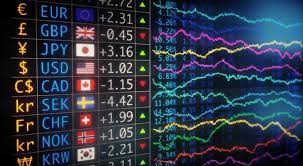
Forex Trading Basics: A Beginner’s Guide
Forex, or foreign exchange, is one of the largest financial markets in the world. If you’re new to trading, forex trading basics beginners guide Forex Brokers in Jordan can help facilitate your journey into this dynamic environment. This guide will break down key concepts, terminology, and strategies to give you a strong foundation in Forex trading.
Understanding Forex Trading
Forex trading involves buying and selling currency pairs. Unlike traditional stock markets, which trade shares of companies, Forex trading deals with the exchange rates of currencies. For instance, if you buy EUR/USD, you are buying euros while simultaneously selling US dollars. The aim is to profit from fluctuations in these exchange rates.
Key Terminology
Before diving into trading, it’s essential to familiarize yourself with some basic terminology:
- Pip: A pip is the smallest price move that a given exchange rate can make based on market convention. In most currency pairs, it’s the fourth decimal place (0.0001).
- Lot: In Forex trading, a lot is a standardized quantity of the asset being traded. A standard lot is 100,000 units of currency.
- Leverage: Leverage allows traders to control a larger position with a smaller amount of capital. Although it can amplify profits, it also increases risk.
- Spread: The spread is the difference between the bid price and the ask price. A lower spread often indicates a more liquid market.
Choosing a Forex Broker

Your choice of a Forex broker is crucial for success. Look for brokers that are regulated by reputable authorities, offer competitive spreads, and provide a user-friendly trading platform. A good broker will also offer educational resources to help you learn and develop your trading skills.
Types of Forex Markets
The Forex market operates 24 hours a day and consists of different sessions. The primary trading sessions are:
- Asian Session: Features major currencies like the Japanese Yen and Australian Dollar.
- European Session: Includes the Euro and British Pound.
- North American Session: Predominantly involves the US Dollar.
Understanding the various sessions can help you gauge market activity and volatility at different times of the day.
Basic Trading Strategies
There are an array of strategies utilized by Forex traders. Here are a few popular ones:
- Day Trading: This strategy involves opening and closing trades within the same day to capitalize on small price movements.
- Swing Trading: Swing traders look to hold trades for several days or weeks. They profit from price swings in the market.
- Position Trading: Position traders have a longer-term outlook, holding trades for months or even years to capture larger trends.
Error Management and Risk Control

Effective risk management is vital for any trader. Here are some strategies to mitigate risks:
- Set Stop-Loss Orders: This order automatically closes a trade at a certain price level to limit potential losses.
- Use Proper Position Sizing: Determine how much of your capital you are willing to risk on a single trade and adjust your position size accordingly.
- Diversify Your Trades: Avoid putting all your capital into one trade. Diversification can help manage risk across your portfolio.
Developing a Trading Plan
A solid trading plan can keep your emotions in check and establish a disciplined approach. Key components of a trading plan include:
- Goals: Define what you want to achieve with your trading.
- Market Analysis: Choose the analysis methods you will rely on, such as technical analysis or fundamental analysis.
- Risk Management Rules: Outline how you will manage risk for each trade.
Continuous Learning and Adaptation
The Forex market is constantly evolving, and successful traders continually seek to improve their skills and adapt to market changes. Participate in webinars, read trading books, follow market news, and engage with the trading community to stay informed and enhance your trading strategies.
Final Thoughts
Forex trading can be a rewarding venture when approached with the right knowledge and preparation. By understanding the basics, familiarizing yourself with trading terminology, and practicing disciplined trading, you can embark on your Forex trading journey with confidence. Remember to keep learning and stay adaptable in this ever-changing market.